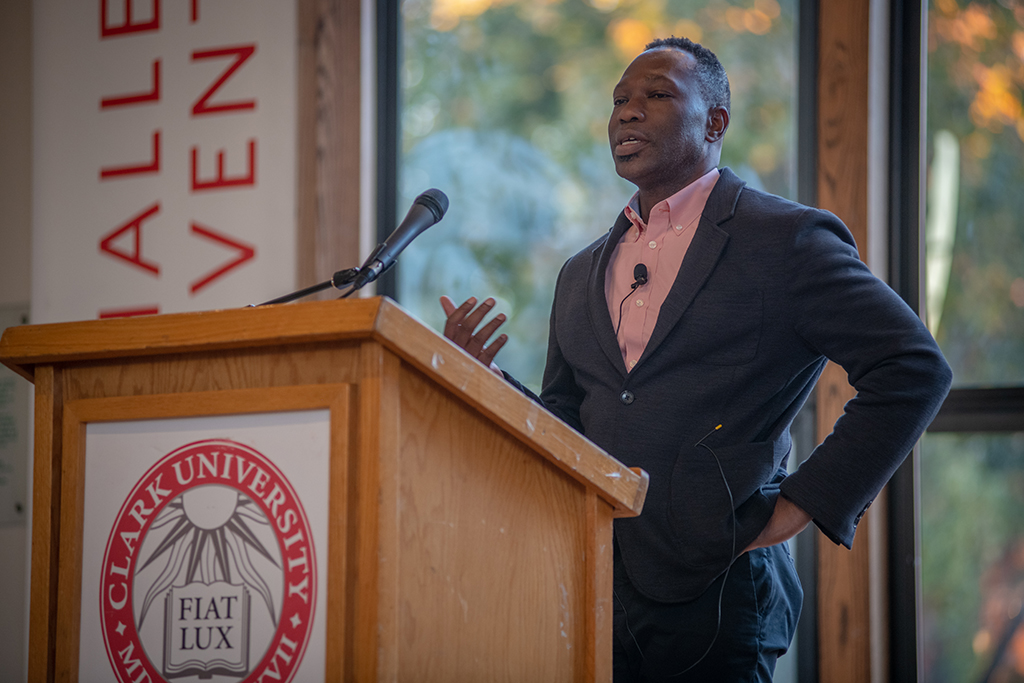Law professor: U.S. needs to ensure fair access to voting

Clark’s official observance of Constitution Day featured a lecture by Guy-Uriel E. Charles, the Charles J. Ogletree Jr. Professor of Law at Harvard Law School, where he also directs the Charles Hamilton Houston Institute for Race and Justice. Charles writes about how law mediates political power and addresses racial subordination.
Charles is currently working on a book on the past and future of voting rights, which argues that the race-based model that underlies the Voting Rights Act has run its course and that the best way to protect against racial discrimination in voting is through a universal, positive rights model of political participation.
In his Oct. 20 talk in Tilton Hall, Ogletree noted that the U.S. Constitution does not directly provide a “positive” right to vote, and that the states create the rules surrounding voting. This lack of centralized oversight led to the disenfranchisement of Black voters in southern states for generations, until the passage of the Voting Rights Act of 1965.
The VRA provided for federal supervision of state election processes and allowed the Department of Justice to make the determination of whether a law is discriminatory. For instance, the use of literacy tests as a gateway to voting was an example of a practice that suppressed the Black vote, Charles said. The Act “addressed barriers that precluded voters from registering and deprived self-governance to voters of color,” he said.
While the Act was “strong and necessary medicine” for an ailing system, the nation’s commitment to addressing “pathological racism” waned over time, Charles said. Supreme Court decisions, most notably in Shelby County v. Holder in 2013, have substantially weakened the protections offered by the VRA.
The U.S. needs to renew its commitment to a set of democratic principles, he said, and address the constitutional deficiencies that impede just and fair access to voting.
“It’s within our grasp to do so,” he said, “and it’s clear what the risks are if we don’t.”
The Constitution Day event was co-sponsored by the Office of the Provost, the Law and Society Program, Pre-Law Advising, and the Political Science Department.


